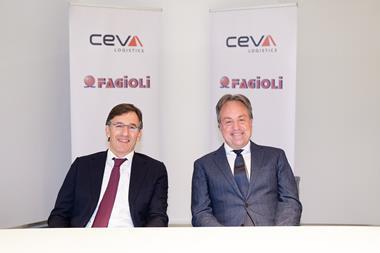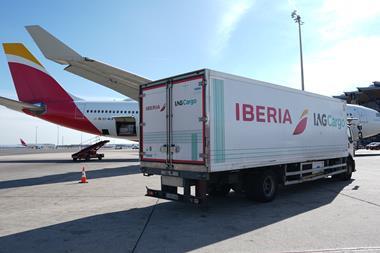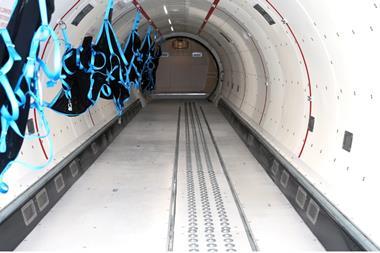DSV saw double-digit growth in airfreight volumes and gross profits in the second quarter of the year but margins took a hit as the integration of UTi continues to take effect.
Announcing its second-quarter results, the Denmark-based logistics company saw revenues increase by 34.1% year on year to DKr17.6bn, while operating profit before special items was up 11.2% to DKr900m thanks to its acquisition of UTi.
However, the cost of integration – amounting to DKr341m during the second quarter – resulted in net profits slipping 37.5% year on year to DKr333m.
UTi’s lower margin level than DSV – UTi was running at a loss at the time of acquisition – saw the forwarder’s second-quarter operating margin slipping to 5.1% from 6.2% last year.
However, chief executive Jens Bjørn Andersen said the integration of UTi is progressing well.
“With earnings growth of more than 10%, we are very satisfied with our performance in the second quarter,” Andersen said.
"DSV continues the positive development, and UTi's operating deficit has been neutralised only five months after the acquisition.
"The integration of UTi is progressing faster than we had originally anticipated, and the merger of offices and IT systems is already more than halfway complete.
“UTi's and DSV's employees and operations are being united step by step across the world, and it is great to see that our new colleagues are highly motivated to become part of the DSV culture – that is crucial for a successful integration.”
Looking at the DSV Air and Sea division’s performance, airfreight volumes increased by 96% in the second quarter to 151,562 tonnes and for the half year demand was up 84.3% to 274,379 tonnes.
This performance easily outstripped the market which grew by an estimated 2% in the second quarter and was flat during the first quarter.
It is also ahead of the 1.3% increase recorded by Kuehne+Nagel, the 0.8% growth recorded by DB Schenker and the 8% jump registered by Panalpina.
Airfreight revenues for the second quarter reflected the increased volumes growing by 74.3% to DKr4.1bn, while gross profit was up 99% to Dkr1.1bn.
The forwarder said: “In addition to the inclusion of UTi, the gross profit was also affected by increasing freight volumes in the original DSV operations, with both air and sea freight showing positive development.
“The aggregate gross profit per unit (TEU/tonne) was in line with the same period of 2015.
“Initially, UTi and DSV operated on two different IT systems and according to different policies for allocation of various costs.
“In connection with the integration, UTi’s activities are migrated to DSV’s IT platform and allocation policies.
“As a result, data quality will continuously be improved and adjustments may be made to the recognition of UTi’s activities.”











